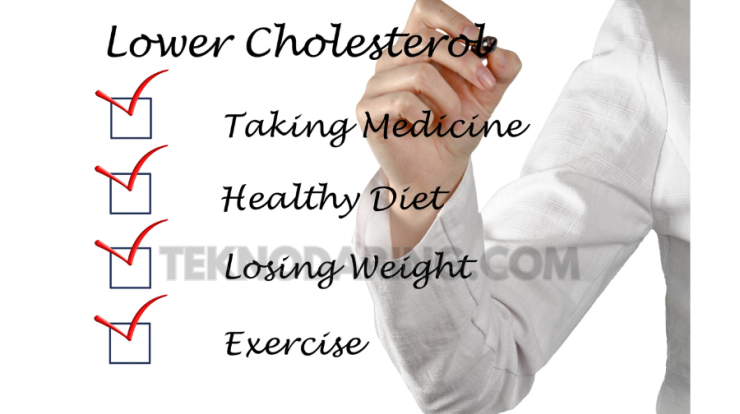
How to Lower Cholesterol – Hello there! In today’s article, we’re going to share some simple but effective ways to lower cholesterol levels naturally. Cholesterol is a waxy substance found in the blood, and while our bodies need it to build healthy cells, having too much of it can increase the risk of heart disease. So, let’s dive into these strategies and start taking control of your cholesterol levels!
1. Eat Heart-Healthy Foods
To begin with, it’s essential to incorporate heart-healthy foods into your diet. Focus on consuming fruits, vegetables, whole grains, and lean protein sources. Choose foods rich in soluble fiber, such as oats and legumes, as they can help lower cholesterol levels.
2. Reduce Saturated and Trans Fats
Foods high in saturated and trans fats can raise your LDL (bad) cholesterol levels. Limit your intake of red meat, processed snacks, fried foods, and full-fat dairy products. Opt for lean meats, low-fat dairy, and healthier fats found in nuts, seeds, and avocado.
3. Exercise Regularly
Regular physical activity is beneficial for both heart health and cholesterol management. Aim for at least 150 minutes of moderate-intensity exercise per week. Activities like brisk walking, swimming, and cycling are excellent choices.
4. Lose Excess Weight
If you are overweight, losing those extra pounds can significantly improve your cholesterol levels. Shedding excess weight not only reduces LDL cholesterol but also helps raise your HDL (good) cholesterol. Focus on a balanced diet and regular exercise to achieve and maintain a healthy weight.
5. Quit Smoking
Aside from damaging your lungs, smoking also lowers your levels of HDL cholesterol. Quitting smoking can be challenging, but it’s one of the best things you can do for your overall health, including your cholesterol levels. Seek support from friends, family, or healthcare professionals to help you kick the habit.
6. Consume Omega-3 Fatty Acids
Omega-3 fatty acids, found in fatty fish like salmon, trout, and mackerel, have been shown to help lower cholesterol levels. If you’re not a fan of fish, you can also incorporate flaxseeds, chia seeds, or walnuts into your diet as plant-based sources of these healthy fats.
7. Enjoy a Glass of Red Wine (in Moderation)
Studies have suggested that moderate alcohol consumption, particularly red wine, can help increase HDL cholesterol levels. However, moderation is key. Consuming excessive amounts of alcohol can have negative effects on your health, so limit yourself to one glass per day for women and up to two for men.
8. Manage Stress Levels
Chronic stress can impact your cholesterol levels and overall heart health. Find healthy ways to manage and reduce stress in your daily life. Engage in activities you enjoy, practice relaxation techniques like meditation or yoga, and ensure you get enough quality sleep.
9. Monitor Your Cholesterol Levels
Regular check-ups with your healthcare provider are vital to monitor your cholesterol levels. They can determine if your lifestyle changes are effective or if medication is necessary. Remember, knowledge is power, and understanding your cholesterol levels will help you stay motivated on your path to better health.
To Wrap It Up
How to Lower Cholesterol – Lifestyle modifications can have a significant impact on lowering cholesterol levels. By implementing these strategies, incorporating healthier habits into your routine, and seeking professional guidance, you can take control of your cholesterol and improve your overall cardiovascular health. Cheers to a healthier life!
Goodbye until the next interesting article!
Originally posted 2023-01-09 18:28:42.






